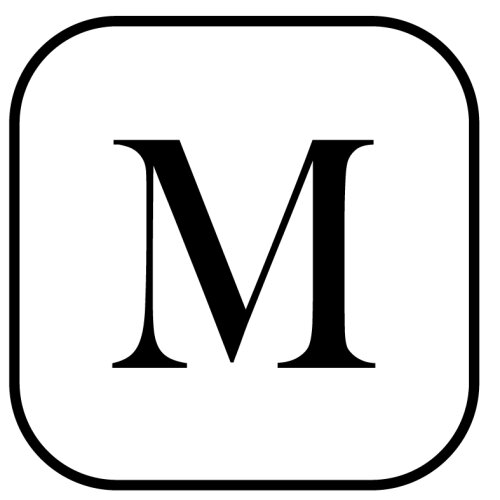Best Sanctions & Export Controls Lawyers in Bree
Share your needs with us, get contacted by law firms.
Free. Takes 2 min.
List of the best lawyers in Bree, Belgium
About Sanctions & Export Controls Law in Bree, Belgium
Sanctions and export controls are a set of national and international rules that limit trade, finance and other interactions with certain countries, organisations or individuals. In Bree - a municipality in the province of Limburg - these rules are applied the same as elsewhere in Belgium. Many sanctions and export-control measures come from the European Union and are directly binding on individuals and companies in Bree. Belgium also imposes implementing measures and runs licensing and enforcement systems through federal authorities. In practice that means businesses and individuals in Bree must follow EU regulations, Belgian implementing decrees and any applicable foreign measures that affect their transactions.
The rules cover two main areas. Sanctions typically block dealings with specified persons, entities or states and can include asset freezes, travel bans and wider trade or financial restrictions. Export controls limit exports, transfers and brokering of goods, software and technology - particularly dual-use items and military equipment - that could be used for weapons development, human-rights abuses or destabilising activities.
Why You May Need a Lawyer
Sanctions and export-control law is technical, fast-changing and cross-border in nature. You may need a lawyer if you face any of the following situations: you receive a sanctions or export-license query from a bank or customs; a counterparty appears on a sanctions list; your shipment is detained by customs; you are asked to apply for a dual-use or military export licence; you are subject to a compliance audit or internal investigation; you discover a possible past breach and need to assess voluntary disclosure; you are under criminal or administrative investigation by Belgian authorities; you need to structure cross-border trade to avoid unlawful exposure; or you are involved in M&A due diligence where potential export-control or sanctions liabilities may affect value.
A lawyer experienced in this area can assess legal exposure, advise on licence applications, prepare and manage interactions with competent authorities, represent you in enforcement proceedings, assist with voluntary disclosures and help build or remediate compliance programmes to reduce future risk.
Local Laws Overview
Several layers of law apply to sanctions and export controls relevant to people in Bree. The European Union issues sanctions regulations and an EU dual-use export-control regime that are directly applicable in Belgium. EU Regulations do not require national implementing legislation to take effect, but Belgium issues national decrees and administrative rules to clarify enforcement details and designate competent authorities.
Belgian competent authorities involved commonly include federal services responsible for foreign affairs, economic affairs and customs. These authorities process licence applications, monitor shipments and enforce prohibitions. Customs authorities have powers to detain suspected illicit exports and to seize goods that violate controls.
Dual-use export controls are based on the EU dual-use regulation. Military goods and defence-related exports are controlled under national rules and international commitments. Both categories may require export licences; some transactions may also need end-user or end-use assurances. Sanctions measures are usually implemented by EU Council regulations and Belgian royal decrees or enforcement notices. Sanctions can include asset freezes, trade restrictions and prohibitions on making funds or economic resources available to designated persons or entities.
Enforcement can lead to administrative fines, seizure of goods, licence revocation, and criminal prosecution for serious violations. Belgian law also penalises circumvention - for example, disguising an export or mis-declaring end-use. Companies and individuals should also be aware of extraterritorial effects - foreign measures from major partners like the United States can affect Belgian actors when there is a sufficient nexus, for example use of US-origin technology or dollar clearing.
Frequently Asked Questions
What is the difference between sanctions and export controls?
Sanctions usually target specific countries, organisations or individuals and restrict financial or commercial interactions with them. Export controls regulate the transfer of goods, software and technology based on their potential military or dual-use applications. The two regimes overlap in practice because sanctions can block exports to certain destinations or recipients, and export-control lists can specify prohibited end-uses or end-users.
Do EU sanctions apply in Bree?
Yes. EU sanctions adopted by the Council of the European Union are directly applicable across all member states including Belgium and therefore apply to people and businesses in Bree. Belgian authorities enforce those sanctions domestically and may issue guidance or national measures to support enforcement.
Who are the Belgian authorities I might deal with?
Depending on the matter, you may interact with federal authorities responsible for foreign affairs, economy, and customs. Customs handle physical export controls and inspections. Other ministries or inspectorates may be involved for specific goods or technologies. The public prosecutor and police will be involved if there is a criminal investigation.
How do I know if an item needs an export licence?
Start by identifying whether the item is on the EU dual-use list or on Belgian military or strategic goods lists. Reviews should examine technical specifications, software, and technology transfers, not just product descriptions. Consider the end-use and end-user, as these factors can trigger controls. When in doubt, contact the competent national authority or seek legal advice for a formal assessment or a licence application.
What should I do if customs detains a shipment?
Preserve all documentation and do not attempt to move the goods. Notify your legal counsel immediately and cooperate with customs inquiries. A lawyer can help communicate with authorities, gather supporting documents such as end-user certificates, and advise whether a licence application or an appeal is appropriate.
Can individuals be personally prosecuted for violations?
Yes. Belgian law can impose criminal liability on individuals who knowingly commit serious violations - for example, deliberately exporting controlled items without a licence or evading sanctions. Senior officers and responsible employees can be held liable in cases involving intent or gross negligence.
What penalties should I expect for non-compliance?
Penalties vary with the nature and severity of the breach and can include administrative fines, confiscation of goods, revocation of licences, civil liability and criminal sanctions including imprisonment in serious cases. There can also be significant reputational and commercial consequences, such as loss of access to financial services or markets.
Do I have to stop doing business if a counterparty is on a sanctions list?
Yes. If a person or entity is subject to an asset freeze or prohibition under applicable sanctions, you must not carry out prohibited transactions and may be required to freeze assets. Carefully check the exact restrictions and seek legal advice before taking any action. Penalties for dealing with designated parties can be severe.
How long does a licence application usually take?
Processing times vary by type of licence, complexity of the transaction and the competent authority workload. Simple applications can be processed in a few weeks, while complex or multi-national cases can take several months. It is prudent to plan well ahead and consult a lawyer to prepare a complete application to reduce delays.
Should I voluntarily disclose a past breach?
Voluntary disclosure can be beneficial and may reduce penalties or improve the outcome in enforcement proceedings. A lawyer can help evaluate the risks, prepare the disclosure in the correct format and manage communications with authorities. Never destroy evidence or falsify records - that will worsen the legal position.
Additional Resources
Federal Public Service Foreign Affairs - handles diplomatic and some sanctions-related functions and can advise on export controls with foreign policy implications.
Federal Public Service Economy - often involved in dual-use export licensing and guidance for businesses on export-control compliance.
Federal Public Service Finance - Customs and Excise - enforces export-control checks at the border, inspects shipments and detains suspected prohibited exports.
Public Prosecutor's Office - responsible for criminal investigations and prosecutions related to breaches of sanctions and export-control laws.
European Union institutions - EU Council sanctions decisions and the EU dual-use regulation set the primary legal framework that applies in Belgium.
Belgian Bar Association and local bar section in Limburg - directories and professional standards can help you find qualified lawyers practising in the region.
Industry associations and export-control helpdesks - trade associations often publish practical guidance and may provide sector-specific compliance tools.
Next Steps
If you think you may have exposure to sanctions or export-control rules, start with a measured approach. Gather documents about the transaction, the product, technical specifications, invoices, contracts, end-user information and any communications. Do not destroy or alter records. Consider temporarily suspending the transaction if there is a clear red flag, such as a sanctioned destination or a blocked party.
Contact a lawyer experienced in sanctions and export controls - ideally someone who understands EU and Belgian systems and has practical experience with customs and licensing processes. Prepare for the initial consultation by summarising the facts, providing key documents and identifying urgent deadlines such as customs holds or regulatory notices. If necessary, coordinate with your compliance team, banks and logistics providers to prevent further exposure.
Consider putting in place or strengthening an export-control and sanctions compliance programme - written policies, screening procedures, staff training, record-keeping and a designated compliance officer will reduce risk. If an actual breach has occurred, a lawyer can advise on voluntary disclosure options and represent you in any administrative or criminal proceedings.
Lawzana helps you find the best lawyers and law firms in Bree through a curated and pre-screened list of qualified legal professionals. Our platform offers rankings and detailed profiles of attorneys and law firms, allowing you to compare based on practice areas, including Sanctions & Export Controls, experience, and client feedback.
Each profile includes a description of the firm's areas of practice, client reviews, team members and partners, year of establishment, spoken languages, office locations, contact information, social media presence, and any published articles or resources. Most firms on our platform speak English and are experienced in both local and international legal matters.
Get a quote from top-rated law firms in Bree, Belgium — quickly, securely, and without unnecessary hassle.
Disclaimer:
The information provided on this page is for general informational purposes only and does not constitute legal advice. While we strive to ensure the accuracy and relevance of the content, legal information may change over time, and interpretations of the law can vary. You should always consult with a qualified legal professional for advice specific to your situation.
We disclaim all liability for actions taken or not taken based on the content of this page. If you believe any information is incorrect or outdated, please contact us, and we will review and update it where appropriate.









